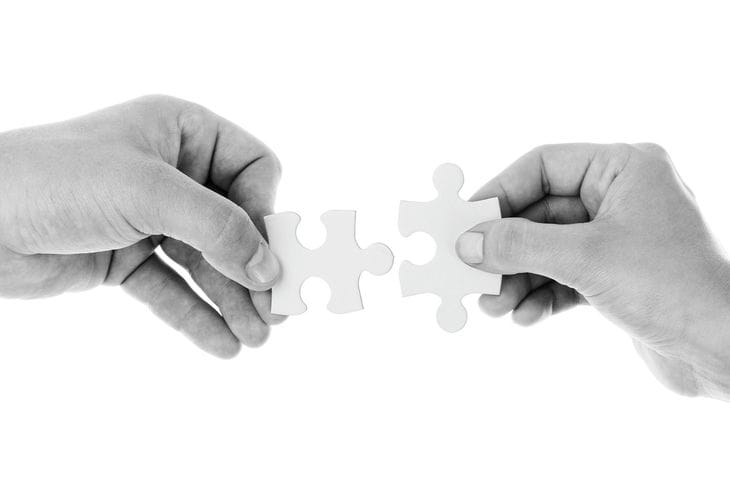There's a fine line between someone who's acting a little out of character and someone who's secretly holding a grudge against you.
Hidden grievances are masked by specific behavior that you need to decipher.
Unusual silence
Silence can say a lot. Many of us have had or have a friend who is usually talkative. But then suddenly he or she becomes unusually quiet, especially around you.

When someone holds a grudge against you, it can be difficult for them to communicate with you like they used to. Instead of words, there is only an awkward silence that lingers whenever you are around.
Sudden avoidance
Let me share a personal experience. I once had a close friend, we used to hang out all the time, and then she suddenly started avoiding our meetings. Every time I suggested catching up, there was always an excuse.
At first I thought she was just swamped with work, but this pattern continued for weeks. That's when it dawned on me that it wasn't because she was busy. She was avoiding me. It turned out she was upset about our misunderstanding and instead of clearing the air, she was holding a grudge.
Sudden avoidance is a classic sign that someone is holding a grudge. They may not be ready to face you or talk about why they are upset, so they choose to avoid you.
Too formal communication
When someone holds a grudge, their communication often changes. They may begin to use overly formal or cold language even in casual conversations.
This sudden shift to formality may be a sign that they are holding a grudge. It is a subconscious way of creating distance while maintaining the appearance of politeness.
Passive-aggressive behavior
A classic sign of resentment is passive-aggressive behavior. This is when someone expresses their negative feelings indirectly, rather than addressing them directly.
This is a subtle way to express resentment without confronting the issue directly. It can be sarcastic remarks, backhanded compliments, or subtle comments that make you wonder if you're imagining things.
This behavior often indicates that someone is holding a grudge. They are upset with you, but instead of discussing it openly, they are allowing their feelings to surface through these passive-aggressive actions.
Frequent criticism
No one is perfect, and constructive criticism can be a valuable tool for growth. However, when someone constantly picks on your shortcomings or criticizes you more than usual, it may be more than just helpful feedback. Frequent and unfounded criticism may indicate an underlying resentment.
Lack of eye contact
Eye contact is one of the most sincere forms of human communication. But when someone is secretly angry with you, that connection can falter. You'll notice that they avoid your gaze or can't hold eye contact for long.
Remember, our eyes often tell stories that our words cannot. If someone continually avoids your gaze, it may be a silent hint that they have a secret grudge against you.
They get angry quickly.
I remember a time when a once patient friend suddenly became irritated over the smallest things. It was confusing and hurtful, especially because I didn't understand why it was happening. I later discovered that he was upset about an incident that happened a few months ago.
This resentment he held caused him to get angry with me quickly. When someone holds a grudge for a long time, they carry negative feelings with them. This can make them more irritable and more prone to anger, especially towards the person they are angry with.
Overly friendly behavior
You might assume that if someone dislikes you, they will naturally be distant or cold. However, sometimes the opposite is true. They may compensate by being overly friendly in their interactions with you. It’s as if they are trying to disguise their hatred by swinging the pendulum to the other extreme.
You may notice that they laugh loudly at your jokes, over-compliment you, or show exaggerated enthusiasm when talking to you. This seems forced, insincere, and may make you question their true intentions.
They get pleasure from your misfortunes.
Schadenfreude is a German word for pleasure derived from someone else's misfortune. It is a complex emotion, and when someone holds a grudge against you, they may be prone to it. If you notice that someone enjoys your misfortunes, it may be because they hold a grudge against you.
Your misfortunes validate their negative feelings, giving them a sense of satisfaction. It may be a subtle smirk when you share bad news, or they no longer seem as sympathetic as they used to when things go wrong for you.
They remember past mistakes
One of the most obvious signs that someone holds a grudge against you is when they can't let go of your past mistakes.
No matter how much you apologize or try to make things right, they keep bringing up that one time you screwed up. It's like they're stuck in a loop, unable to move beyond that point.
This behavior is not only because they have difficulty forgiving, but they also nurse their grudges every time they remind you of past mistakes.








